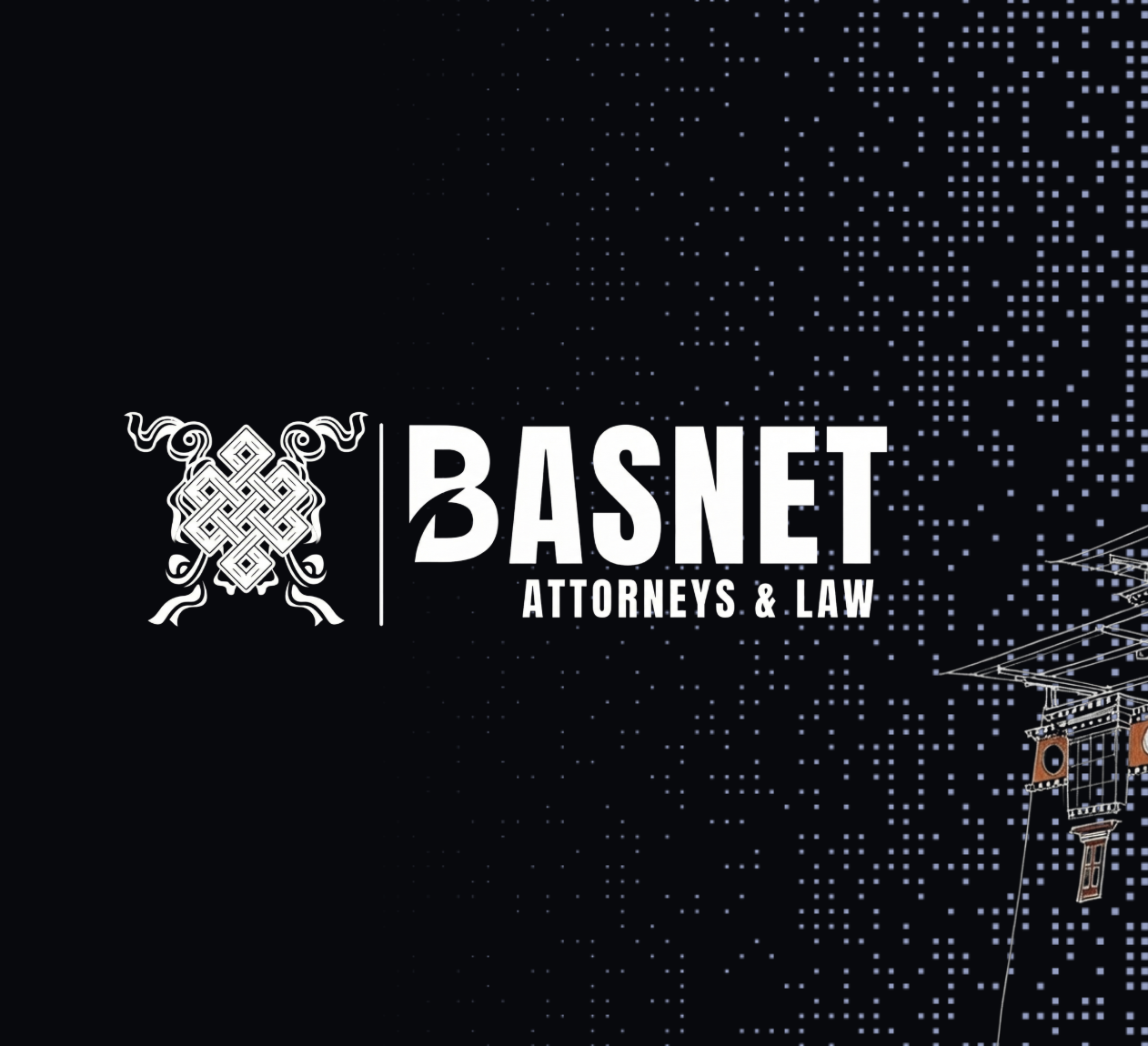Best Corporate Governance Lawyers in Thimphu
Share your needs with us, get contacted by law firms.
Free. Takes 2 min.
List of the best lawyers in Thimphu, Bhutan

Basnet Attorneys and Law - A Premier law Firm in Bhutan
15 minutes Free ConsultationAbout Corporate Governance Law in Thimphu, Bhutan
Corporate governance in Thimphu, Bhutan, refers to the system of rules, practices, and processes by which companies are directed and controlled. Good corporate governance ensures that businesses are run transparently and ethically, balancing the interests of shareholders, management, customers, suppliers, financiers, government, and the community. In Bhutan, corporate governance has become increasingly important as the economy develops and more companies seek to operate within the global marketplace. The Royal Monetary Authority of Bhutan, the Ministry of Economic Affairs, and the Companies Act of Bhutan play key roles in shaping corporate governance practices in the country.
Why You May Need a Lawyer
Navigating corporate governance laws can be complicated for individuals and companies in Thimphu. There are several situations where legal assistance may be necessary:
- Establishing a new company or business entity
- Drafting or reviewing a company’s articles of incorporation and bylaws
- Handling disputes between shareholders, directors, or other stakeholders
- Ensuring compliance with the Companies Act of Bhutan and related regulations
- Drafting and implementing corporate policies or codes of conduct
- Managing issues related to mergers, acquisitions, or restructuring
- Facing investigations or enforcement actions by regulatory authorities
- Addressing conflicts of interest and ethical dilemmas at the board or management level
- Ensuring accurate financial reporting and transparency
A qualified lawyer can provide guidance, help you avoid legal pitfalls, and protect your rights and interests throughout these processes.
Local Laws Overview
Bhutan’s corporate governance framework draws largely from the Companies Act of Bhutan 2016, which outlines the legal requirements for company formation, operations, duties of directors and officers, and disclosure obligations. Public companies, private companies, and state enterprises must all adhere to specific governance standards. In addition to the Companies Act, the Royal Securities Exchange of Bhutan and sector-specific regulators may have additional governance requirements for listed or regulated entities.
Key aspects include:
- Requirements for the composition and functioning of boards of directors
- Duties and responsibilities of directors and officers, including fiduciary duties and responsibilities for company management
- Regulations on annual general meetings and shareholder rights
- Mandatory disclosures and financial reporting standards for companies
- Mechanisms for dispute resolution among stakeholders
- Regulations for mergers, acquisitions, and company restructuring
- Enforcement mechanisms by regulatory bodies for non-compliance
Frequently Asked Questions
What is corporate governance?
Corporate governance refers to the structure of rules and processes for the direction and control of a company, ensuring transparency, accountability, and protection of stakeholder interests.
What is the main law regulating corporate governance in Bhutan?
The Companies Act of Bhutan 2016 is the primary legislation governing corporate governance in the country, including Thimphu.
Who oversees corporate governance compliance in Bhutan?
Enforcement and oversight fall under the Ministry of Economic Affairs, the Registrar of Companies, and in some instances, the Royal Monetary Authority and sector-specific regulators.
Do all companies have to follow the same governance rules?
While core requirements are consistent, certain rules and obligations differ for public companies, private companies, and state enterprises.
What are the responsibilities of a company director under Bhutanese law?
Directors have fiduciary duties to act honestly and in good faith, manage the company’s affairs responsibly, and ensure legal compliance and fair treatment of stakeholders.
How is shareholder protection addressed in Bhutan?
Shareholders are empowered through voting rights, annual general meetings, and disclosure requirements, ensuring transparency and participation in company decisions.
What happens if a company fails to comply with governance laws?
Non-compliance can result in penalties, fines, criminal charges, or even dissolution of the company by regulatory authorities.
When should a company update its governance documents or policies?
Any significant organizational change, regulatory update, or annual review is an appropriate occasion to revise policies or governance documents.
Are there special requirements for foreign-owned companies in Bhutan?
Yes, foreign-owned companies may have additional regulatory requirements and must comply with the Foreign Direct Investment Policy and the Companies Act.
How can I resolve a dispute between company stakeholders?
Disputes may be resolved internally via mediation, through judicial proceedings in Bhutanese courts, or regulatory intervention, depending on the nature of the conflict.
Additional Resources
If you are seeking guidance or more information regarding corporate governance in Thimphu, consider reaching out to the following resources and organizations:
- Registrar of Companies, Ministry of Economic Affairs
- Royal Monetary Authority of Bhutan
- Royal Securities Exchange of Bhutan
- Bhutan Chamber of Commerce and Industry (BCCI)
- Local law firms specializing in corporate and commercial law
- Corporate Compliance and Ethics Units within major companies
Next Steps
If you believe you need legal assistance regarding corporate governance in Thimphu, Bhutan, it is recommended to:
- Identify the specific corporate governance issue you are facing.
- Gather all relevant documents, policies, and correspondence.
- Contact a qualified lawyer or law firm experienced in corporate governance and local company law.
- Consult with professionals to understand your rights, responsibilities, and potential risks.
- Follow legal guidance to address governance matters, resolve disputes, or ensure regulatory compliance.
Early involvement of a legal expert can prevent complications, safeguard your interests, and help ensure your business meets all governance standards expected by authorities in Thimphu and across Bhutan.
Lawzana helps you find the best lawyers and law firms in Thimphu through a curated and pre-screened list of qualified legal professionals. Our platform offers rankings and detailed profiles of attorneys and law firms, allowing you to compare based on practice areas, including Corporate Governance, experience, and client feedback.
Each profile includes a description of the firm's areas of practice, client reviews, team members and partners, year of establishment, spoken languages, office locations, contact information, social media presence, and any published articles or resources. Most firms on our platform speak English and are experienced in both local and international legal matters.
Get a quote from top-rated law firms in Thimphu, Bhutan — quickly, securely, and without unnecessary hassle.
Disclaimer:
The information provided on this page is for general informational purposes only and does not constitute legal advice. While we strive to ensure the accuracy and relevance of the content, legal information may change over time, and interpretations of the law can vary. You should always consult with a qualified legal professional for advice specific to your situation.
We disclaim all liability for actions taken or not taken based on the content of this page. If you believe any information is incorrect or outdated, please contact us, and we will review and update it where appropriate.










